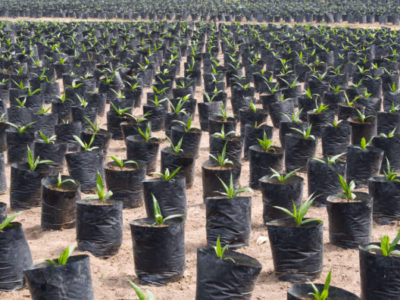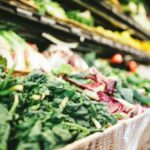Palm oil is the world’s cheapest and most widely used vegetable oil, and its production is a significant driver of deforestation and biodiversity loss in the tropics. Estimates report that the palm oil market was roughly $62.30 billion in 2021 and will reach more than $75 Billion by 2028.
Because palm oil is only grown in the tropics, palm tree plantations destroy rainforest habitats for people and wildlife from Costa Rica to Indonesia when land is cleared for crops. Further, carbon-absorbing forests are essential for meeting global climate change goals.
Palm trees produce high-quality oil used primarily for cooking in developing nations. In addition, many food products, detergents, cosmetics, and biofuels contain palm oil.
Over 250 companies and nine countries worldwide have made public commitments to stop using “conflict palm oil” in their supply chains. Conflict palm oil refers to practices that endanger iconic species like the Sumatran orangutan, tiger, elephant, and rhino and forcefully remove Indigenous Peoples and local communities from their land for new palm oil plantation development. However, less than 20% of the palm oil supply is certified sustainable after more than a decade.
The Roundtable on Sustainable Palm Oil (RSPO) certifies palm oil supply chains. RSPO offers increased oversight of palm oil production to ensure “that no primary forests or areas which contain significant concentrations of biodiversity (e.g., endangered species) or fragile ecosystems, or areas which are fundamental to meeting basic or traditional cultural needs of local communities (high conservation value areas), are cleared.” But it can be challenging to certify smallholder growers, who collectively represent most palm oil production in some regions.
As far as alternatives, other tropical oils, such as coconut oil, have lower yields than palm oil and would have even more significant impacts if cultivated on the same scale. Other non-tropical oils, such as soy or corn oil, can be grown outside the biodiverse tropics, but they often require expensive additional processing to replace palm oil and produce trans fats.
Given the size of the problem, companies are exploring the use of yeast to make palm oil alternatives:
- Xylome’s technology, funded by the National Science Foundation and the US Department of Energy, uses stillage, a low-value wastewater stream from the production of ethanol factories. Each year, roughly 200 industrial ethanol factories in the U.S. collectively produce about 30 million metric tons of stillage, which contains water-soluble organics and corn fiber residues that are difficult to dispose of. Xylome’s patented technology is based on Lipomyces starkeyi, a yeast known for 75 years and generally recognized as safe (GRAS). Using the stillage, Xylome’s scientists engineered a strain of yeast to have a high capacity to produce yeast oil purer than palm oil, with properties that would allow the yeast oil to serve as a replacement for palm oil. Xylome is collaborating with major ethanol producers for scaleup and commercialization.
- C16 Biosciences, with funding from Bill Gates, Jeff Bezos, Michael Bloomberg, and Richard Branson, uses a microbial fermentation process to brew sustainable alternatives to palm oil. They believe that brewing bio-based oil (like beer is brewed) is the answer to developing a truly sustainable palm oil alternative. In their approach, they “feed” a yeast with sugar to make it grow to produce large amounts of oil within their cells, which they extract.
Experts, not working for either company, estimate that yeast oil could be about four times as expensive as palm oil due to the limits of science. However, it may be possible to produce valuable co-products such as amino acids or proteins, making the financials more attractive.
And, of course, a full-life-cycle study of the environmental impact of yeast oils is needed to ensure that the total picture of yeast oil is better than that of palm oil. So we’ll have to keep watching this story unfold.








